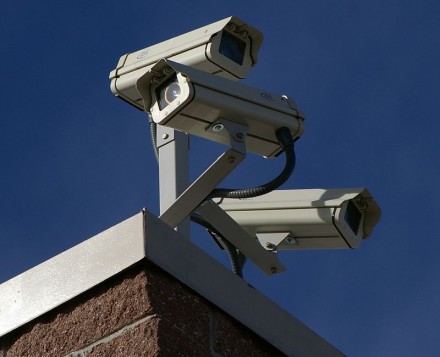Last night MPs overwhelmingly voted for the Data Retention and Investigatory Powers (DRIP) Bill in a so-called ‘emergency’ that was known of as far back as April. There no hurry over the last three months and then, suddenly, an emergency was concocted. There’s little point in complaining about the rush because that was the whole point. The leaders of the three main parties wanted to ensure it got minimal public debate and scrutiny in case people were outraged about how it expanded surveillance powers over all our communications. Once again, we will take our civil liberties for granted until these powers get (predictably) abused and we are jolted into outrage.
I don’t say this lightly: the DRIP bill farce has essentially shredded Ed Miliband’s credentials on civil liberties. The Labour leadership is acting as it did before 2010: pretending to be reluctant about signing away our rights because it is necessary. Then, we went from a demand to lock up people without trial for 14 days to demands for 90 days detention or else the terrorists would win.
Civil liberties are a social justice issue too – a point some Labour MPs and activists don’t seem to have quite yet grasped. When the police or security services abuse their ever-growing powers, the victims are invariably ethnic minorities and/or the most marginalised in society. From stop-and-search to 90 days detention and even the Malicious Communications Act – it has always people from minority backgrounds or those with unpopular opinions who get harassed, spied on or arrested.
This is why watching events unfold within Labour over the last few days has been a gob-smacking experience. Tom Watson wrote to Yvette Cooper in April, after a European Court struck down these surveillance powers as illegal, to ask what reform might look like. He wanted the shadow Home Secretary to grasp the nettle and start the debate early.
But instead Yvette Cooper kept quiet and instead agreed to a stitch-up between Theresa May and Nick Clegg. Then, astonishingly, she stood up in the Commons yesterday to call for a wider debate on UK’s surveillance laws despite having ignored a fellow Labour MP who called on her to do exactly that.
The hypocrisy doesn’t stop there. Last year Yvette Cooper said Labour would be guided by “evidence, proportionality…and seeking strong checks and balances” when it came to decisions on civil liberties. Yet the DRIP Bill fails on all those counts: it allows the security services to hoover up everyone’s data without offering sufficient reasons for doing so. No evidence has been provided in support either. We have been thrown some crumbs as amendments so the Labour leadership can pretend they were grudging partners rather than co-conspirators.
I implore you to read ORG’s “myth list” on the DRIP Bill and explain how this isn’t a farcical stitch-up. Yesterday, the debate was predictably peppered with constant references to terrorists and pedophiles if anyone even dared ask if this was a proportionate measure. A largely compliant media either toed the line or just ignored the bill.
All this doesn’t even make political sense any more. Since 2010 Labour has attracted a large chunk of ex-Lib Dem voters who abandoned the party because it broke their trust over Iraq, civil liberties and a host of related issues. What does Labour say about civil liberties to them after this? Why should they believe Labour will be different than in 2010? Ed Miliband’s calculation that they just won’t notice this, or will hold their nose because of their distaste for Nick Clegg, is cynical politicking at its worse.
Eric Joyce MP wrote last night that DRIP was, “essentially a repeat, in principle, of that terrible moment at the end of what I believe was a period in government Labour folk should otherwise be proud of.”
Ed Miliband himself said on Labour’s approach to civil liberties when launching his leadership bid in 2010: “There was too much of a sense that we were casual when it came to the relationship of the state and the individual.” It seems that casualness is back with a vengeance and nothing was learnt.
When presented with an opportunity to challenge the consensus, stand up for principle and start an important debate, Ed Miliband quietly gave in to Theresa May’s agenda. If Labour activists want to win the General Election next year, incidents like this should be a cause for outrage.





More from LabourList
Almost half of Labour members oppose plans to restrict jury trials, poll finds
‘How Labour can finally fix Britain’s 5G problem’
‘The University of the Air – celebrating 60 years of Harold Wilson and Jennie Lee’s vision’